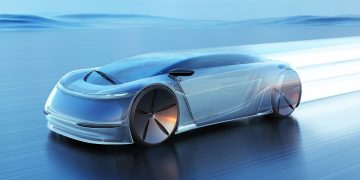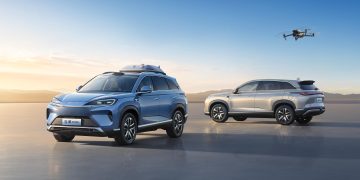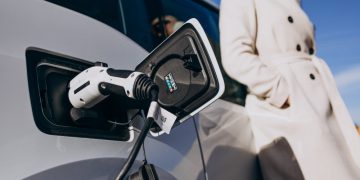Introduction: The Global Dependence on Fossil Fuels
Fossil fuels, particularly oil, have been the cornerstone of global transportation for over a century. The widespread use of petroleum-based fuels in internal combustion engine (ICE) vehicles has been a major contributor to the world’s dependence on oil. The implications of this dependency are significant—oil is a finite resource, and its extraction and consumption have environmental consequences, including pollution and carbon emissions. Moreover, geopolitical tensions, supply disruptions, and price volatility have further highlighted the vulnerabilities of relying heavily on fossil fuels for transportation.
As the world grapples with the urgent need to mitigate climate change and secure sustainable energy sources, the transition to electric vehicles (EVs) has become a promising solution to reduce dependence on fossil fuels. Electric vehicles, which run on electricity stored in batteries instead of petroleum-based fuels, offer the potential to significantly lessen the demand for oil while simultaneously advancing global sustainability goals.
This article explores how the shift from petroleum-based vehicles to electric vehicles is helping decrease reliance on fossil fuels, examining the benefits of EV adoption, the mechanisms behind this transition, and the broader impact on global oil consumption.
The Global Shift Toward Electric Vehicles
The automotive industry has historically been dominated by vehicles that run on internal combustion engines, powered by gasoline and diesel. These fuels are derived from oil, which is extracted from the earth and refined into usable forms of energy. For decades, oil has been the backbone of the transportation sector, and the vast infrastructure supporting this system—from refineries to gas stations—has made petroleum the most convenient and widely available source of energy for vehicles.
However, the rise of electric vehicles in recent years marks a significant shift in this paradigm. EVs offer a sustainable alternative to traditional petroleum-based vehicles by using electricity as their primary fuel source. The increasing adoption of electric vehicles worldwide is seen as one of the most promising strategies for reducing global oil consumption and addressing the negative environmental impact of fossil fuels.
While EVs still represent a minority of the global vehicle fleet, their numbers are growing rapidly. According to the International Energy Agency (IEA), global sales of electric cars surged by 41% in 2020, and EVs now account for around 5% of global car sales. This rapid growth in EV adoption is driven by several factors, including advances in battery technology, increasing consumer demand for cleaner and more efficient transportation, and supportive government policies aimed at reducing greenhouse gas emissions.
How Electric Vehicles Decrease Demand for Oil
Electric vehicles help decrease dependence on fossil fuels primarily by reducing the demand for gasoline and diesel, the two most commonly used petroleum-based fuels in the transportation sector. There are several ways in which EVs contribute to this reduction in demand:
- Substitution of Gasoline and Diesel with Electricity
The most direct way that EVs reduce reliance on fossil fuels is by replacing gasoline and diesel engines with electric motors. While traditional vehicles require refined oil products to run, electric vehicles use electricity, which can be sourced from a variety of energy sources, including renewable options such as solar, wind, and hydroelectric power.
As the number of EVs on the road increases, the demand for gasoline and diesel will decline. This shift not only reduces the amount of oil required to fuel transportation but also diminishes the environmental impact associated with oil extraction, refinement, and combustion.
- Decreased Refining and Distribution Needs
In addition to reducing the consumption of oil-based fuels, the widespread adoption of electric vehicles also reduces the need for refining and distributing petroleum products. Oil must first be extracted from the earth, transported to refineries, and processed into gasoline and diesel before it can be used as fuel in vehicles. Once refined, petroleum products must be transported to gas stations and other distribution points, further adding to the environmental impact of oil-based transportation.
Electric vehicles bypass these stages of the petroleum supply chain. Instead of relying on the complex and energy-intensive process of refining and distributing oil, EVs depend on an electricity grid that can be powered by various energy sources, including renewable energy. This reduces the need for an extensive global oil distribution infrastructure and cuts down on the associated environmental impact.
- Increasing Energy Efficiency
One of the key advantages of electric vehicles over traditional petroleum-powered vehicles is their superior energy efficiency. Internal combustion engine vehicles typically operate at about 20-30% efficiency, meaning that a large proportion of the energy produced by burning gasoline or diesel is wasted as heat. In contrast, electric vehicles are much more efficient, with electric motors capable of converting around 85-90% of the energy stored in their batteries into actual movement.
This higher efficiency means that EVs require less energy to travel the same distance as conventional vehicles, resulting in a lower overall demand for energy, including fossil fuels. The shift toward more efficient vehicles is a key factor in reducing global dependence on oil.
The Role of Renewable Energy in EV Adoption
While the transition to electric vehicles is an important step in reducing oil consumption, the full environmental benefits of EVs can only be realized when the electricity used to power them comes from renewable energy sources. As long as electricity is primarily generated from fossil fuels such as coal or natural gas, the environmental impact of operating an EV will still be tied to the carbon footprint of those power plants.
However, the energy mix is steadily shifting in favor of renewable sources. Globally, renewable energy capacity has been expanding at a rapid pace, with wind, solar, and hydropower accounting for a growing share of electricity generation. This shift away from coal and natural gas power plants will significantly reduce the carbon emissions associated with EVs, further decreasing the need for fossil fuels.
The combination of renewable energy and electric vehicles presents a powerful strategy for reducing global reliance on oil. By pairing EV adoption with an increased share of renewable energy in the power grid, countries can create a more sustainable and less oil-dependent energy ecosystem. In this way, the transition to electric vehicles is not only helping to reduce oil consumption but also contributing to the broader goal of decarbonizing the global economy.
Government Policies Supporting EV Adoption
Governments around the world have recognized the importance of electric vehicles in reducing dependence on fossil fuels and mitigating climate change. As a result, many countries have implemented a range of policies and incentives to encourage the adoption of EVs.
- Subsidies and Tax Incentives
To make EVs more affordable and attractive to consumers, many governments offer financial incentives such as tax credits, rebates, and subsidies. These incentives help to offset the higher upfront cost of EVs, which can be a barrier to adoption for some buyers. In some countries, EV owners can receive tax breaks or government grants, making electric vehicles more competitive with traditional gasoline-powered cars.
- Fuel Efficiency Standards
In addition to direct financial incentives, many countries have introduced stricter fuel efficiency standards for vehicles. These standards, which require automakers to produce vehicles that meet certain emissions and fuel economy thresholds, have pushed the automotive industry to develop more fuel-efficient technologies, including electric vehicles.
As part of these efforts, several governments have set ambitious targets for EV adoption, with some aiming for a future where all new vehicles sold are electric. For example, in the United Kingdom, the government has announced plans to ban the sale of new gasoline and diesel cars by 2030, encouraging the widespread adoption of electric vehicles.
- Infrastructure Development
For EVs to become a mainstream alternative to gasoline and diesel vehicles, a robust charging infrastructure is essential. Many governments are investing in the expansion of EV charging networks to ensure that electric vehicle owners have easy access to charging stations. This infrastructure development is crucial for encouraging consumers to switch to electric vehicles, as range anxiety and access to charging points remain significant concerns for potential buyers.

The Economic and Geopolitical Implications of EV Adoption
The widespread adoption of electric vehicles has the potential to reshape the global oil market, with far-reaching economic and geopolitical implications.
- Reduced Oil Demand and Price Volatility
As electric vehicles replace petroleum-based vehicles, the global demand for oil will gradually decrease. This reduction in demand could have a significant impact on global oil prices, particularly in regions where economies are heavily dependent on oil exports. Countries that rely on oil revenues to fund their economies may face economic challenges as oil prices fall, prompting them to diversify their industries and develop alternative sources of income.
- Energy Independence
For many countries, reducing dependence on imported oil is a key geopolitical goal. The transition to electric vehicles, coupled with the growth of domestic renewable energy sources, can help nations achieve greater energy independence. By relying less on oil imports and more on locally produced renewable energy, countries can reduce their vulnerability to fluctuations in global oil prices and lessen the geopolitical risks associated with oil supply disruptions.
Challenges to Overcome
While the potential for electric vehicles to reduce dependence on fossil fuels is clear, several challenges remain in achieving widespread EV adoption. These challenges include:
- Battery Production and Raw Material Sourcing: The production of EV batteries requires significant amounts of raw materials, including lithium, cobalt, and nickel. Ensuring a sustainable and ethical supply chain for these materials is critical to the long-term viability of electric vehicles.
- Charging Infrastructure: Expanding EV charging infrastructure to meet the growing demand for electric vehicles is a key challenge, particularly in rural or underserved areas.
- Range and Charging Time: While EVs continue to improve in terms of range and charging time, addressing consumer concerns about these factors is essential for widespread adoption.
Conclusion: The Future of Fossil Fuel Dependence
Electric vehicles are playing a crucial role in reducing global dependence on fossil fuels, particularly oil. By replacing petroleum-based vehicles with electric vehicles, the demand for gasoline and diesel is decreasing, while the need for oil refining and distribution is also being reduced. When coupled with renewable energy sources and supportive government policies, electric vehicles represent a powerful strategy for mitigating the environmental and geopolitical risks associated with fossil fuel reliance.
While challenges remain, the shift to electric vehicles offers a promising path toward a future with lower oil consumption, greater energy independence, and a more sustainable global transportation system. As EV technology continues to evolve and charging infrastructure expands, the transition to a world where electric vehicles dominate the roads will accelerate, further reducing the world’s dependence on fossil fuels.











































